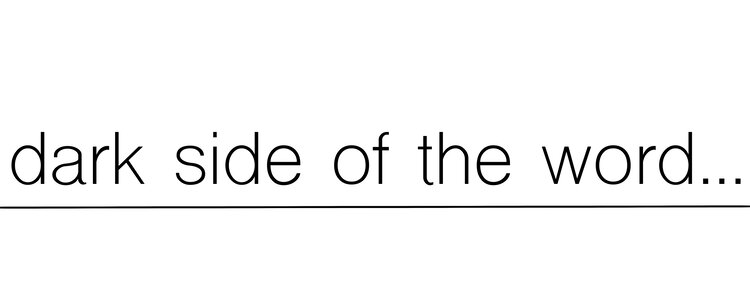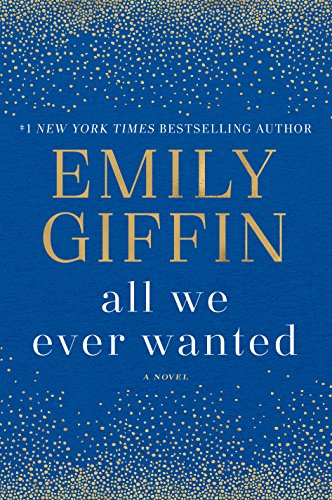“People make time for what matters to them.”
What if your son had done it? What if your son had sexually abused someone and the proof was floating around? Not only does Nina struggle with the truth but what it also means for her as a mother. How can she bring about justice when her husband undermines everything she does? As Nina watches events unfold, she begins to see how their rich lives might be to blame. Lyla, living with her single dad, just wants it all to go away, to ignore what happened. She has a crush on the boy, and doesn’t this really mean that he likes her? How will she handle the ridicule at school? It wasn’t that racists, but her dad won’t let it go, won’t let Lyla fade into the background. Because there’ll always be another scandal.
What an interesting premise for an author that has mainly done light chic-lit - even one about stealing your best friend’s fiance. I appreciate that Giffin stretched her boundaries, but her execution, on the other hand, left a lot to be desired.
There are three POVs throughout the book. Right away we are introduced to Nina, the first character to learn of the photo floating around and that her son is the supposed photographer. The photo shows a girl on a bed, half naked, with a racial slur captioned at the bottom. At first Nina can’t believe that her good son, the same one that’s just been accepted into Princeton, could be the one responsible. Where did she go wrong? There has to be an explanation?
And that is where Nina’s realistic character arc ends. Nina is written as too perfect. She wasn’t born into the upper class, instead being married into it like Cinderella herself. Because of that, she can somehow look above everyone else and see what’s wrong. Why this whole class is some evil hoard beast that should be destroyed. And this is what makes my blood boil - not everyone with money is evil first off. And second, I think her coming to that realization while being a part of the class would have had a larger impact on the reader. Instead, Nina was the superhero character that saved the day and could do no wrong.
With a mother such as Nina, how would Finch have really turned into the boy he did? A confusing conundrum that feels a little far fetched. Giffin alludes to Finch having a private relationship with his father that isn’t shared with Nina… but again, it’s a little too played up for the sake of the story.
“But I cherished our filterless relationship and considered it the truest measure of a best friend, greater than pure affection. Who was the person you trusted enough to be your most transparent self with, in both good times and bad?”
All We Ever Wanted shows the strength of a mother’s love. I appreciated that Nina was there for her son. She wants justice, but not at the cost of letting her son go through the consequences of his actions. I have no idea what I would do in this situation, probably spend a moment hoping for a switch to undo what just happened, but I would hope to be like Nina. Giffin created the perfect representation of a mother always saying “That no matter what, I will always love you.”
Giffin also brings up the idea that women need to speak out when something happens. If we fade into the background, ignoring or blaming ourselves for what happened, it could easily happen to another person, another girl. Very important ideas and thoughts that need to be discussed.
Still, I really didn’t enjoy the book as a whole. The writing was flat, without dimension or description to carry the reader along. The ending was rushed with unrealistic plot points - not every story needs to be wrapped up in a tight bow, especially when said bow is strangling the very essence of what the story is about. Class distinction is written at the expense of the middle class, forming a line that isn’t too nice. Weird backstories litter the plot line, confusing the readers when they never lent to the story. The only one I think is important is Nina’s backstory since it plays directly into the concept. But Nina’s moment back home with the ex boyfriend did nothing to enhance or express the characters. Last but not least, some of the plot lines felt over dramatized for the sake of drama instead of the message or the story.
“Minigolf,” she said with stone seriousness, “is a metaphor for life.”
I smiled and said, “Oh, really?”
“Yes. I mean, think about it….Do you take it seriously? Too seriously? Do you enjoy it? Do you keep careful score? Do you get upset when you lose? Do you cheat? And if you do cheat, how do you react when you’re busted? Are you sheepish? Sorry? Do you do it again?”
All in all, I don’t regret reading the book, and I’m giving it a solid 3 stars out of 5, but there are some key writing issues that I’m surprised to see in an author with so many books under her belt. I don’t remember her other books being this poorly constructed. Changing your genre shouldn’t change how well you write, if anything it should help you grow.
Well, until next time. I’m just writing away in my lock up. Getting closer to that end goal. I hope you’re all well and happy.
Happy Reading
Love Kait
Reading Challenge: 0/100 (this is what happens when you’re writing instead of reading. The horror.)


